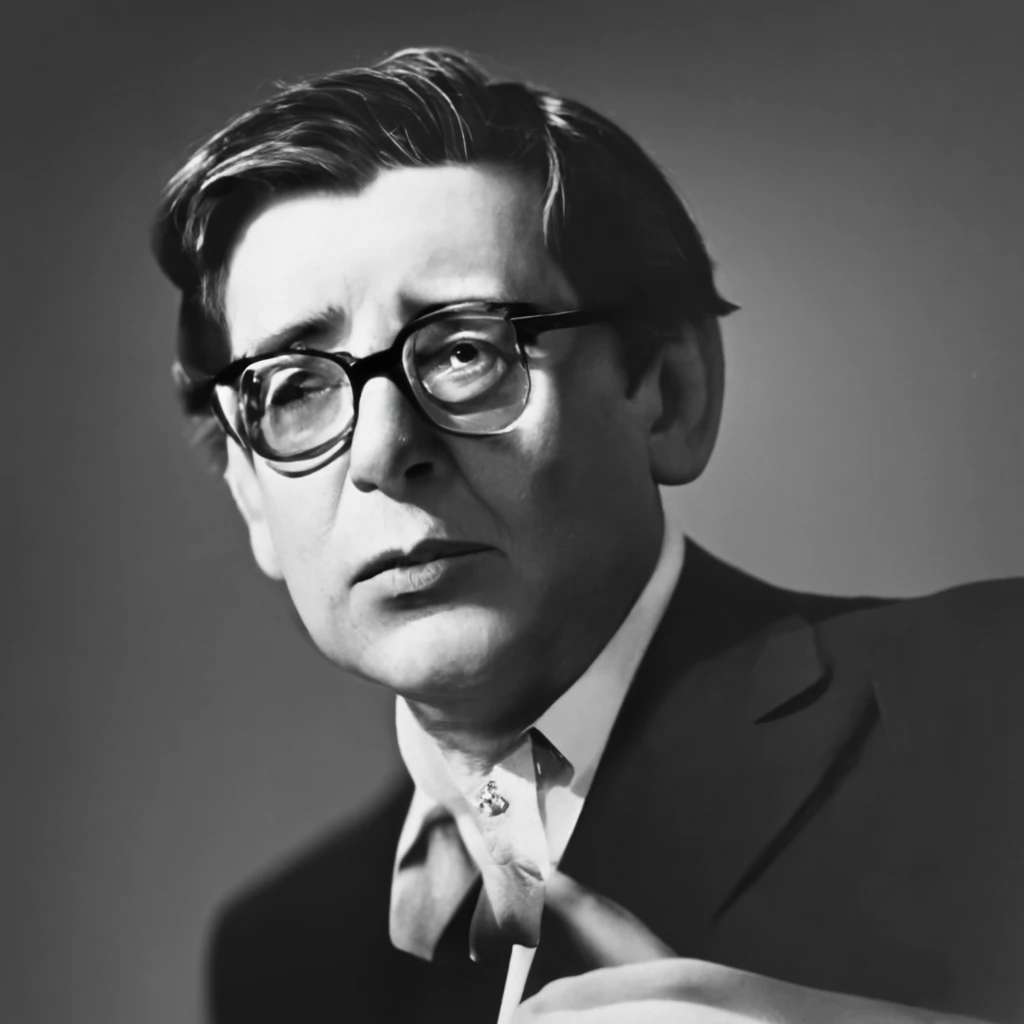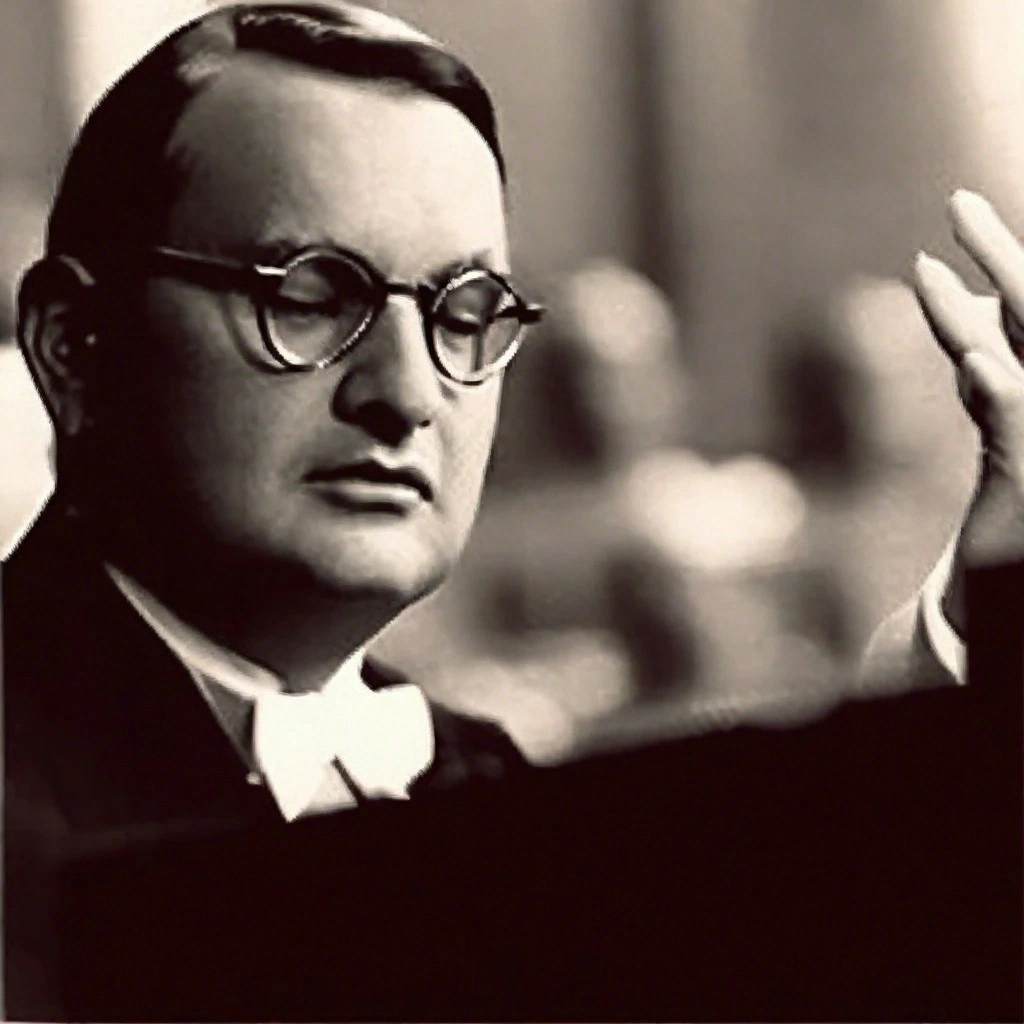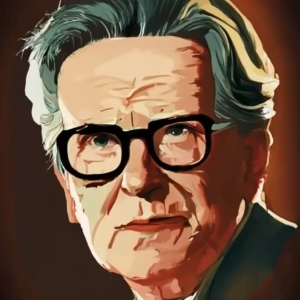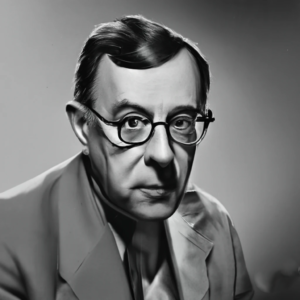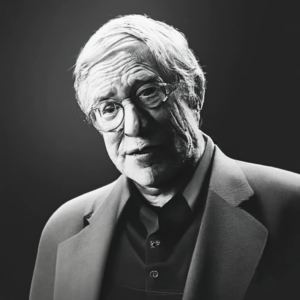Introduction:
Renowned for his innovative and emotionally evocative compositions, Bernard Herrmann stands as a towering figure in the realm of film music. With a career spanning several decades, Herrmann’s work has left an indelible mark on cinema, captivating audiences and critics alike with its power and depth. In this exploration, we delve into the life, music, and legacy of this influential composer, shedding light on the genius behind some of the most iconic film scores in history.
From his early days to his lasting impact on the industry, Herrmann’s journey offers a fascinating glimpse into the artistry and innovation of film composition. Join us as we uncover the brilliance of Bernard Herrmann, a true master of the soundtrack.
Background and Early Life:
Bernard Herrmann was born on June 29, 1911, in New York City, USA. Raised in a culturally vibrant environment, Herrmann showed an early aptitude for music, drawing inspiration from the bustling city streets and diverse array of musical styles surrounding him. His parents recognized his talent and provided him with opportunities to nurture his musical abilities from a young age. Herrmann began studying the violin at the age of eight and quickly displayed exceptional skill and dedication to his craft.
Despite his classical training, Herrmann developed a keen interest in contemporary and avant-garde music, which would later become a hallmark of his compositional style. His formative years were marked by a voracious appetite for learning, as he immersed himself in a wide range of musical genres, from jazz to opera, absorbing influences that would later shape his distinctive approach to composition.
One of the most significant influences on Herrmann’s early life was his exposure to the works of European composers such as Richard Wagner and Gustav Mahler. Their use of orchestration and thematic development deeply resonated with Herrmann, inspiring him to explore new possibilities within the realm of film music. These early influences laid the foundation for Herrmann’s later experimentation and innovation in the field.
As a young man, Herrmann attended DeWitt Clinton High School in the Bronx, where he continued to refine his musical skills. His talent was evident to his peers and teachers alike, earning him recognition as one of the most promising young musicians of his generation. Following high school, Herrmann pursued further studies at New York University and the Juilliard School, honing his craft under the guidance of esteemed composers and mentors.
During this time, Herrmann also began to establish himself as a composer and conductor, working on various projects in both the concert hall and the theater. His early experiences in these diverse musical settings provided him with invaluable practical experience and helped to shape his versatile and adaptive approach to composition.
By the time he embarked on his career in film music, Herrmann had already cultivated a reputation as a formidable talent within the music world. His background in classical music, combined with his avant-garde sensibilities and innovative spirit, would set the stage for his groundbreaking contributions to the art of film scoring.
Musical Style and Genre:
Bernard Herrmann’s musical style is characterized by its depth, emotionality, and innovative use of orchestration. He possessed a remarkable ability to capture the essence of a film’s narrative through his music, creating immersive and evocative soundscapes that enhanced the cinematic experience. Herrmann’s approach to composition was rooted in his classical training but also drew inspiration from a diverse array of musical genres, including romanticism, impressionism, and modernism.
One of Herrmann’s defining characteristics as a composer was his mastery of orchestration. He had a keen understanding of the expressive potential of each instrument in the orchestra and was adept at using them to convey a wide range of emotions and moods. Herrmann’s orchestrations were often rich and layered, with intricate harmonies and textures that added depth and complexity to his compositions.
In terms of genre, Herrmann is perhaps best known for his work in the realm of film music, particularly in the genres of suspense, horror, and psychological drama. His collaborations with director Alfred Hitchcock, including scores for iconic films such as “Psycho” and “Vertigo,” are considered some of the most influential and groundbreaking in cinematic history. Herrmann’s ability to create tension and suspense through his music played a crucial role in shaping the mood and atmosphere of Hitchcock’s films, earning him widespread acclaim and recognition.
Beyond his work in film, Herrmann also composed music for radio, television, and the concert hall. His diverse body of work includes operas, symphonies, chamber music, and concertos, showcasing his versatility as a composer. Regardless of the medium or genre, Herrmann’s music consistently displayed a profound emotional resonance and a commitment to pushing the boundaries of traditional composition.
Herrmann’s musical style was characterized by its use of leitmotifs, recurring thematic elements that symbolize characters, emotions, or ideas within a film. This technique, borrowed from the operatic tradition, allowed Herrmann to create a sense of continuity and coherence throughout his scores, reinforcing key themes and motifs in the narrative. His use of leitmotifs was particularly evident in his collaborations with Hitchcock, where he employed them to heighten the psychological tension and thematic depth of the films.
Overall, Bernard Herrmann’s musical style defies easy categorization, encompassing elements of classical, romantic, and modernist music within the context of film and beyond. His innovative approach to composition and orchestration, combined with his ability to evoke deep emotional responses from audiences, cement his legacy as one of the most influential and revered composers in the history of film music.
Career Highlights:
Bernard Herrmann’s career was punctuated by a series of remarkable achievements and milestones, cementing his reputation as one of the most influential composers in the history of film music. From his early successes to his groundbreaking collaborations with acclaimed directors, Herrmann’s journey was defined by innovation, creativity, and a commitment to pushing the boundaries of cinematic storytelling through music.
One of Herrmann’s earliest career highlights came in 1934 when he was hired as a staff conductor and composer at CBS Radio. During his time at CBS, Herrmann composed scores for a variety of radio programs, including the iconic “Mercury Theatre on the Air,” where he collaborated with Orson Welles on groundbreaking productions such as “The War of the Worlds.” His work in radio helped to establish him as a formidable talent in the world of music and paved the way for his transition to film.
Herrmann’s partnership with director Alfred Hitchcock produced some of the most enduring and iconic film scores in cinematic history. Their collaboration began in 1955 with “The Trouble with Harry” and continued with a string of classic films, including “Vertigo,” “North by Northwest,” and “Psycho.” Herrmann’s scores for these films were revolutionary in their use of music to heighten suspense, enhance mood, and deepen the psychological impact of the narrative. His iconic score for “Psycho,” featuring the chillingly memorable shrieking violins during the infamous shower scene, remains one of the most recognizable and influential film scores of all time.
In addition to his work with Hitchcock, Herrmann collaborated with other celebrated filmmakers, including Orson Welles, Martin Scorsese, and François Truffaut. His scores for films such as “Citizen Kane,” “Taxi Driver,” and “Fahrenheit 451” further solidified his reputation as a master of his craft, earning him critical acclaim and numerous awards and nominations.
Herrmann’s contributions to the world of film music extended beyond his work as a composer. He was also a trailblazer in the field of film scoring, pioneering innovative techniques and approaches that would influence generations of composers to come. His use of electronic instruments, unconventional orchestrations, and experimental sound design pushed the boundaries of traditional film scoring and helped to redefine the role of music in cinema.
Throughout his career, Bernard Herrmann remained committed to his artistic vision and uncompromising in his pursuit of excellence. His music continues to inspire and captivate audiences around the world, leaving an indelible mark on the history of film and ensuring his legacy as one of the true giants of film composition.
Impact and Influence:
Bernard Herrmann’s impact on the world of music, particularly in the realm of film scoring, cannot be overstated. His innovative approach to composition and orchestration revolutionized the way music was used in cinema, influencing generations of composers and filmmakers alike. Herrmann’s work not only elevated the artistry of film music but also expanded the possibilities of what could be achieved through the marriage of music and moving images.
One of Herrmann’s most significant contributions was his ability to use music to enhance the emotional depth and psychological complexity of a film. Through his collaboration with directors such as Alfred Hitchcock, Herrmann demonstrated how music could be used to convey mood, atmosphere, and character development in ways that were previously unseen in cinema. His scores for films like “Psycho” and “Vertigo” not only complemented the visuals but also added layers of meaning and subtext, elevating the overall impact of the films.
Herrmann’s influence extended beyond the realm of film, shaping the broader landscape of contemporary music. His pioneering use of electronic instruments and experimental techniques foreshadowed developments in electronic music and sound design, laying the groundwork for future innovations in the field. Additionally, Herrmann’s emphasis on thematic development and leitmotif paved the way for a more sophisticated approach to film scoring, inspiring countless composers to explore new ways of integrating music into narrative storytelling.
Furthermore, Herrmann’s uncompromising dedication to his artistic vision served as a model for aspiring musicians and composers. He was known for his meticulous attention to detail and his willingness to push the boundaries of convention in pursuit of his creative goals. His fearlessness in the face of artistic challenges and his commitment to excellence set a high standard for artistic integrity in the industry, inspiring others to strive for greatness in their own work.
Herrmann’s influence can also be seen in the continued reverence and admiration for his music among audiences and critics alike. Decades after his passing, his scores continue to be celebrated for their timeless beauty, emotional resonance, and sheer brilliance. His music has been preserved and honored through recordings, performances, and academic studies, ensuring that future generations will continue to be inspired by his legacy for years to come.
In summary, Bernard Herrmann’s impact on music and cinema is profound and far-reaching. His innovative approach to composition, his groundbreaking work in film scoring, and his enduring legacy as a visionary artist have left an indelible mark on the history of music and film, cementing his status as one of the greatest composers of the 20th century.
Personal Life and Public Image:
In addition to his illustrious career as a composer, Bernard Herrmann’s personal life and public image offer intriguing insights into the man behind the music. Known for his intense and sometimes volatile temperament, Herrmann was both respected and feared within the industry for his uncompromising commitment to his artistic vision.
Herrmann’s personal life was marked by a mixture of professional triumphs and personal challenges. He was known to be fiercely dedicated to his work, often spending long hours in the studio perfecting his compositions. Despite his reputation for being demanding and exacting, Herrmann was also deeply passionate about music and deeply invested in the success of his projects.
In terms of his public image, Herrmann was often seen as a somewhat enigmatic figure, preferring to let his music speak for itself rather than seeking out the spotlight. He eschewed the trappings of celebrity and remained fiercely independent throughout his career, refusing to compromise his artistic principles for the sake of commercial success.
However, Herrmann’s uncompromising nature sometimes led to conflicts with directors and producers, particularly during the later years of his career. His refusal to compromise on creative differences ultimately led to his departure from several high-profile projects, including “Torn Curtain” with Alfred Hitchcock. Despite these setbacks, Herrmann remained steadfast in his commitment to his artistic vision, earning him respect and admiration from colleagues and fans alike.
In his personal life, Herrmann was known to be a private and somewhat reclusive individual. He was married three times and had several children, although details about his family life are scarce. Herrmann’s focus was primarily on his work, and he rarely spoke about his personal life in interviews or public appearances.
Despite his reputation for being somewhat aloof and difficult to work with, Herrmann was deeply respected by his peers and collaborators for his unparalleled talent and creative genius. His contributions to the world of music and cinema continue to be celebrated and studied to this day, ensuring that his legacy as one of the greatest composers of the 20th century will endure for generations to come.
Discography or Body of Work:
Bernard Herrmann’s discography encompasses a diverse array of compositions across film, radio, television, and the concert hall. His body of work showcases his versatility as a composer and his ability to evoke a wide range of emotions and moods through music. While he is perhaps best known for his groundbreaking film scores, Herrmann’s contributions to other mediums are equally noteworthy and deserving of recognition.
In the realm of film, Herrmann’s collaboration with director Alfred Hitchcock produced some of the most iconic and enduring scores in cinematic history. His work on films such as “Psycho,” “Vertigo,” and “North by Northwest” helped to redefine the role of music in film, elevating the medium to new heights of artistic expression. Herrmann’s use of leitmotifs, innovative orchestrations, and bold thematic statements set a new standard for film scoring and inspired generations of composers to follow in his footsteps.
Outside of his work with Hitchcock, Herrmann composed scores for a wide range of films spanning various genres and styles. His music for Orson Welles’ “Citizen Kane” is widely regarded as one of the greatest film scores of all time, perfectly complementing the film’s innovative storytelling and groundbreaking visual techniques. Other notable film scores by Herrmann include “The Day the Earth Stood Still,” “The Ghost and Mrs. Muir,” and “Taxi Driver,” each showcasing his unique artistic voice and unparalleled talent as a composer.
In addition to his work in film, Herrmann also composed music for radio, television, and the concert hall. His radio scores, including those for the “Mercury Theatre on the Air” productions, helped to establish him as a leading figure in the world of radio drama and showcased his ability to create compelling narratives through music alone. Herrmann’s television work, including scores for shows such as “The Twilight Zone” and “The Alfred Hitchcock Hour,” further demonstrated his versatility and adaptability as a composer.
In the concert hall, Herrmann composed a number of orchestral works, including symphonies, concertos, and chamber music. While his concert music is less well-known than his film scores, it nevertheless exhibits the same level of craftsmanship and innovation that defined his work in other mediums. Herrmann’s concert music often features lush orchestrations, evocative melodies, and a keen sense of drama, reflecting his lifelong dedication to the art of music composition.
Overall, Bernard Herrmann’s discography represents a remarkable body of work that continues to inspire and captivate audiences around the world. His groundbreaking contributions to the world of film music, combined with his versatility and innovation as a composer, ensure that his legacy will endure for generations to come.
Legacy and Cultural Impact:
Bernard Herrmann’s legacy looms large over the world of music and cinema, leaving an indelible mark on both art forms that continues to resonate to this day. His innovative approach to film scoring and his groundbreaking compositions have had a profound influence on generations of composers, filmmakers, and audiences, shaping the way we perceive and experience music in the context of moving images.
One of Herrmann’s most enduring legacies is his role in elevating the status of film music to that of a legitimate art form. Prior to his pioneering work in the 20th century, film scores were often seen as mere background music, secondary to the visual elements of a film. However, Herrmann’s scores for films like “Psycho,” “Vertigo,” and “Citizen Kane” demonstrated the transformative power of music in cinema, proving that a well-crafted score could enhance the emotional impact and narrative depth of a film in profound and unexpected ways.
Herrmann’s influence can be seen in the work of countless composers who have followed in his footsteps, from John Williams to Hans Zimmer. His use of leitmotifs, innovative orchestrations, and bold thematic statements have become standard techniques in the world of film scoring, influencing the way composers approach their craft and inspiring new generations of artists to push the boundaries of musical storytelling.
Beyond his impact on film music, Herrmann’s legacy extends to the broader cultural landscape, where his music continues to be celebrated and studied as a testament to the power of artistic expression. His scores have been preserved and honored through recordings, performances, and academic studies, ensuring that his contributions to the world of music and cinema will be remembered and appreciated for years to come.
Herrmann’s influence can also be seen in popular culture, where his iconic themes and motifs have been referenced and reinterpreted in various media. From television shows to video games, Herrmann’s music continues to captivate and inspire audiences across different generations and cultural backgrounds, attesting to its enduring relevance and impact.
In summary, Bernard Herrmann’s legacy as one of the greatest composers of the 20th century is secure, thanks to his groundbreaking contributions to film music and his lasting influence on the wider world of music and culture. His innovative approach to composition, his uncompromising commitment to his artistic vision, and his ability to evoke deep emotional responses from audiences ensure that his music will continue to resonate and inspire for generations to come.
Fanbase and Community:
Bernard Herrmann’s music has cultivated a devoted fanbase and vibrant community of enthusiasts who are drawn to his innovative compositions and groundbreaking contributions to the world of film music. Despite his somewhat reclusive nature, Herrmann’s music has transcended geographical and cultural boundaries, captivating audiences around the world and inspiring a dedicated following that continues to celebrate his legacy to this day.
Within the film music community, Herrmann is revered as a true pioneer and visionary, whose work has left an indelible mark on the art form. Fans of Herrmann’s music often gather online and in person to discuss and analyze his scores, sharing insights, interpretations, and personal anecdotes about their favorite compositions. Online forums, social media groups, and fan websites provide platforms for fans to connect with one another and engage in lively discussions about Herrmann’s music and its impact on cinema.
In addition to online communities, Herrmann’s music is also celebrated through various fan events and gatherings, including film screenings with live orchestra performances of his scores. These events offer fans the opportunity to experience Herrmann’s music in a live setting and to connect with like-minded individuals who share their passion for his work. Such events often attract a diverse audience, ranging from seasoned film music aficionados to casual moviegoers who have been captivated by Herrmann’s evocative scores.
Herrmann’s influence can also be seen in the proliferation of tribute albums, cover versions, and reinterpretations of his music by contemporary artists and musicians. These artistic homages pay homage to Herrmann’s enduring legacy and introduce his music to new generations of listeners who may not be familiar with his work. From classical musicians to rock bands, artists from a wide range of genres have been inspired by Herrmann’s compositions, further cementing his status as a cultural icon.
Moreover, Herrmann’s music has inspired a number of charitable initiatives and philanthropic efforts supported by his fans and admirers. Tribute concerts and fundraising events have been organized in his honor, with proceeds going towards music education programs, film preservation projects, and other charitable causes. These initiatives not only pay tribute to Herrmann’s musical legacy but also serve to enrich the lives of others through the power of music.
In summary, Bernard Herrmann’s fanbase and community are a testament to the enduring impact of his music and the profound connection it fosters among listeners from all walks of life. Through online forums, fan events, and charitable endeavors, fans of Herrmann’s music continue to celebrate his legacy and ensure that his contributions to the world of music and cinema are remembered and cherished for generations to come.
Conclusion:
n conclusion, Bernard Herrmann’s life and music stand as a testament to the power of artistic innovation and creative expression. From his early days as a prodigious young musician to his groundbreaking work in film scoring, Herrmann’s journey was marked by a relentless pursuit of excellence and a commitment to pushing the boundaries of musical storytelling.
Throughout his career, Herrmann left an indelible mark on the world of music and cinema, revolutionizing the way we perceive and experience film music. His innovative use of orchestration, thematic development, and experimental techniques set a new standard for film scoring, inspiring generations of composers and filmmakers to follow in his footsteps.
Beyond his contributions to film music, Herrmann’s influence extends to the broader cultural landscape, where his music continues to captivate and inspire audiences around the world. His enduring legacy as one of the greatest composers of the 20th century is a testament to the timeless beauty, emotional depth, and artistic brilliance of his music.
As we reflect on Bernard Herrmann’s life and legacy, we are reminded of the transformative power of music to touch our hearts, stimulate our minds, and enrich our lives. His music will continue to resonate with audiences for generations to come, ensuring that his legacy remains alive and vibrant in the hearts and minds of music lovers everywhere.
